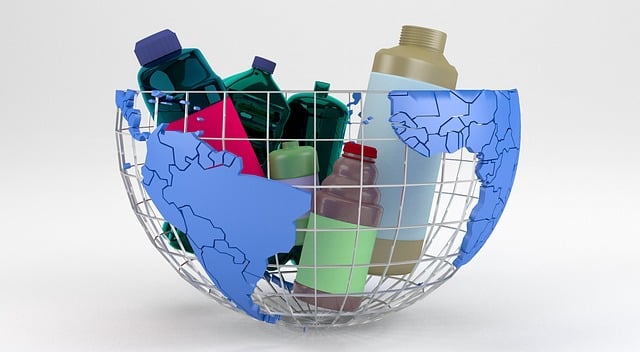Innovators on the Horizon:
As the world faces the mounting crisis of ocean pollution, several leading brands are stepping up with innovative solutions to turn ocean plastic waste into valuable products. This shift not only helps mitigate environmental damage but also sets a precedent for how companies can contribute to sustainability. Below are few companies that reuse plastic. These companies that repurpose plastic help the environment in a significant way. Also these are companies that use recycled materials to make new products. From major athletic wear brands to high-tech firms, here’s a look at some of the top companies that use recycled ocean plastic making waves by incorporating ocean plastic into their product lines.
1. Adidas
Adidas has been a trailblazer in integrating ocean plastic waste into its products. Their collaboration with Parley for the Oceans has resulted in the creation of the Parley x Adidas line, which features footwear and apparel made from recycled ocean plastic. The company has produced millions of pairs of shoes using this material, and their commitment extends to innovative manufacturing processes that reduce environmental impact. Adidas continues to lead the industry with ambitious goals, including using only recycled polyester in its products by 2024.
2. Patagonia
Patagonia, renowned for its environmental stewardship, has integrated recycled ocean plastic into its product line through its “Regenerative Organic Certification” and “Patagonia Action Works” initiatives. Their line of clothing and gear, such as jackets and backpacks, incorporates recycled ocean plastic and other sustainable materials. Patagonia’s commitment to reducing environmental impact is reflected in their dedication to fair labor practices, ethical sourcing, and circular economy principles.
3. Hewlett Packard Enterprise (HPE)
Hewlett Packard Enterprise is pushing the boundaries of technology and sustainability with its innovative approach to using recycled ocean plastic. HPE has developed a range of products, including computer equipment and server casings, made from ocean plastic waste. Their initiative, called “HPE Sustainable Plastics,” focuses on using recovered plastics to reduce reliance on virgin materials and promote a circular economy in the tech industry. By integrating ocean plastic into their manufacturing process, HPE is setting a new standard for sustainability in technology.
4. Volvo Cars
Volvo Cars is leading the charge in the automotive industry with its use of recycled ocean plastics. The company’s S90 and XC60 models feature interior components made from ocean plastic waste. Volvo’s commitment to sustainability includes a broader goal of using 25% recycled plastics in all new Volvo cars by 2025. This initiative not only helps reduce plastic waste but also demonstrates the potential for incorporating recycled materials into high-performance automotive components.
5. Unifi’s REPREVE
Unifi’s REPREVE brand specializes in transforming recycled materials, including ocean plastic, into high-quality fibers and fabrics. These materials are used by various brands in apparel, accessories, and home textiles. REPREVE’s collaboration with leading companies such as Levi’s, Ford, and Timberland highlights the versatility and impact of recycled ocean plastic in different product categories. The company’s dedication to innovation and sustainability is driving the adoption of recycled materials across multiple industries.
6. Dell Technologies
Dell Technologies has made significant strides in incorporating recycled ocean plastic into its products. Through its “Closed Loop Plastic” program, Dell uses ocean plastic in its packaging and components for laptops and other electronic devices. The company’s goal is to use 100% recycled or renewable materials in its packaging by 2030. Dell’s efforts not only help reduce ocean plastic pollution but also push the boundaries of sustainable practices in the technology sector.
7. Coca-Cola
Coca-Cola has committed to increasing the use of recycled materials in its packaging through its “World Without Waste” initiative. The company has begun incorporating ocean plastic into its PET bottles, aiming to create a circular economy for plastic packaging. Coca-Cola’s efforts are part of a broader goal to collect and recycle the equivalent of every bottle or can it sells by 2030, thus contributing to reducing ocean plastic pollution and fostering sustainable practices in the beverage industry.
8. Nike
Nike, a global leader in sportswear, has made significant strides in incorporating recycled ocean plastic into its products. Through its “Nike Grind” initiative, the company collects and processes plastic waste, including ocean plastic, to create high-performance materials used in footwear and apparel. Nike’s commitment extends beyond product design; they are also investing in sustainable practices and partnerships to reduce their environmental footprint and support ocean conservation efforts.
9. TerraCycle’s Ocean Plastic Recycling Program
TerraCycle, a company renowned for its innovative recycling solutions, runs an Ocean Plastic Recycling Program that focuses on transforming ocean plastic into new consumer products. TerraCycle collects plastic waste from coastal regions and processes it into a range of items, including recycled ocean plastic bottles and packaging. Their approach involves collaborating with local communities and businesses to scale up recycling efforts and promote circular economy practices.
The Ripple Effect of Innovation
These brands are not only addressing the immediate challenge of ocean plastic pollution but also setting new standards for sustainability across their industries. Their innovative approaches demonstrate that integrating ocean plastic into products can lead to significant environmental benefits while driving positive consumer engagement and corporate responsibility.
The impact of these initiatives extends beyond the products themselves. By incorporating recycled materials, these companies are influencing supply chains, encouraging other businesses to adopt sustainable practices, and raising awareness about the importance of ocean conservation.
As more companies follow in the footsteps of these pioneers, the future of ocean plastic recycling looks promising. The collective efforts of these innovators highlight the potential for creating a more sustainable world through creative solutions and responsible practices. By continuing to embrace and expand these initiatives, we can look forward to a cleaner ocean and a more sustainable future.




